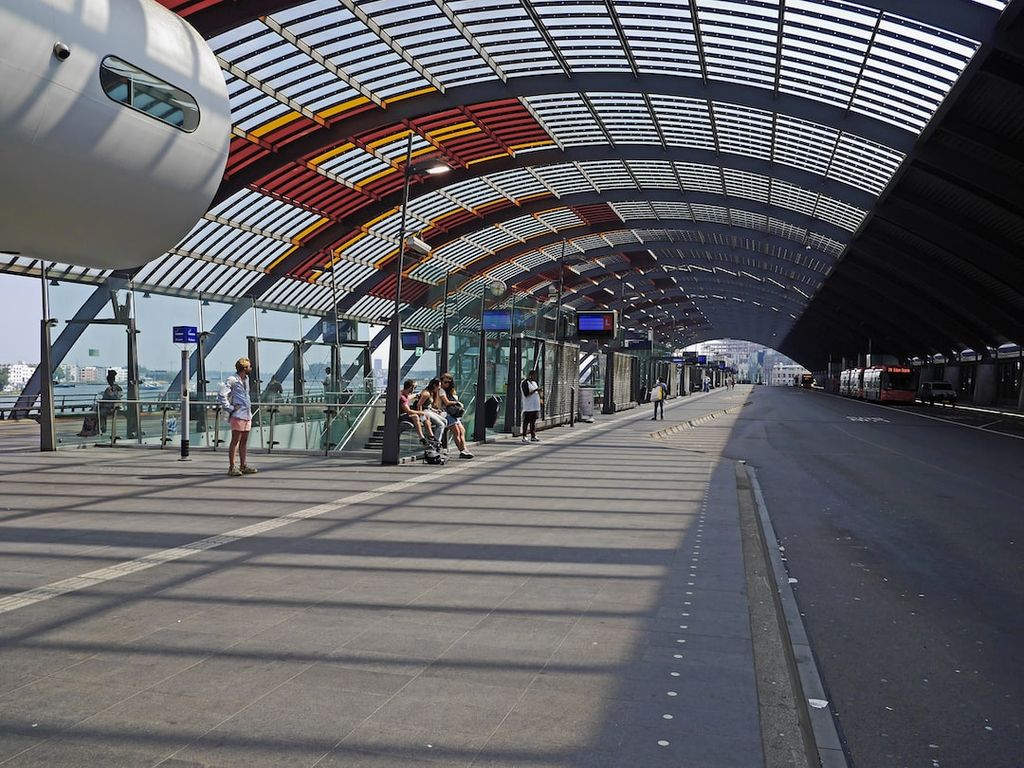The trade relationship between US auto suppliers and the Netherlands presents both opportunities and challenges. In order to navigate the financial recovery process successfully, it is important for US auto suppliers to understand and address the challenges they may face. This article explores the challenges faced by US auto suppliers in trade with the Netherlands and provides strategies for financial recovery. Additionally, it highlights the government support and initiatives available to US auto suppliers. Here are the key takeaways from the article:
Key Takeaways
- Tariffs and trade barriers pose challenges for US auto suppliers in trade with the Netherlands.
- Regulatory differences between the two countries can impact the financial recovery process.
- Cultural and language challenges can affect communication and business operations.
- Diversification of markets can help US auto suppliers mitigate risks and enhance financial recovery.
- Enhancing supply chain efficiency is crucial for improving financial performance.
Challenges Faced by US Auto Suppliers in Trade with the Netherlands
Tariffs and Trade Barriers
Navigating tariffs and trade barriers can be challenging for US auto suppliers in trade with the Netherlands. The different regulatory requirements and customs procedures can create delays and increase costs. Additionally, the cultural and language differences can make communication and negotiation more difficult. It is important for auto suppliers to stay updated on the latest trade policies and seek assistance from export assistance programs to overcome these challenges.
Regulatory Differences
In navigating the regulatory landscape of trade with the Netherlands, we face various challenges. One such challenge is understanding and complying with the DCI regulations. These regulations govern the import and export of certain products and require meticulous attention to detail. Additionally, there are differences in product labeling and safety standards that we must navigate. To ensure compliance, we have implemented internal processes and procedures to stay up to date with the ever-changing regulatory requirements. By staying informed and proactive, we can mitigate potential risks and maintain a smooth trading relationship with the Netherlands.
Cultural and Language Challenges
In navigating the cultural and language challenges of trade with the Netherlands, communication plays a crucial role. It is important for us to understand the Dutch business etiquette and communication style, as well as the language barriers that may arise. Building strong relationships with local partners can help overcome these challenges and foster effective collaboration. Additionally, investing in language training for our team members can improve our ability to communicate and negotiate successfully. By addressing these challenges head-on, we can ensure smooth B2B transactions and optimize our accounts receivable.
Strategies for Financial Recovery in Trade with the Netherlands
Diversification of Markets
In order to mitigate the risks associated with trade with the Netherlands, we recommend diversifying our markets. By exploring opportunities in other countries, we can reduce our dependence on a single market and minimize the impact of any trade barriers or regulatory differences. Expanding into emerging markets such as China and India can provide new avenues for growth and help us navigate the challenges of the global automotive industry. Additionally, we should consider targeting niche markets where we can leverage our expertise and competitive advantage. By diversifying our customer base, we can reduce the vulnerability to fluctuations in demand and protect our financial stability. It is important to note that we should also be mindful of potential risks in these new markets, such as late payments from customers, and implement appropriate risk management strategies.
Enhancing Supply Chain Efficiency
To improve our supply chain efficiency, we have implemented several strategies. First, we have streamlined our communication with suppliers and partners, ensuring that information flows smoothly and promptly. Second, we have optimized our inventory management, reducing excess stock and minimizing delays. Third, we have implemented advanced tracking systems to monitor the movement of goods throughout the supply chain. These measures have helped us reduce costs, improve delivery times, and enhance overall customer satisfaction.
Collaboration with Local Partners
In order to navigate the challenges of trade with the Netherlands and implement effective strategies for financial recovery, we emphasize the importance of collaboration with local partners. By partnering with established companies in the Netherlands, we can leverage their knowledge of the local market, regulations, and cultural nuances. This collaboration allows us to tap into their networks, gain access to potential customers, and identify new business opportunities. Together, we can develop tailored solutions to overcome trade barriers, optimize supply chain efficiency, and enhance our competitive advantage in the Dutch market.
Government Support and Initiatives for US Auto Suppliers
Export Assistance Programs
In our pursuit of financial recovery, we can rely on the support of Export Assistance Programs. These programs provide valuable resources and guidance to US auto suppliers looking to expand their presence in the Netherlands. Through these programs, we can access market research, trade missions, and networking opportunities, allowing us to tap into new business prospects. Additionally, these programs offer financial assistance and grants to help offset the costs of entering new markets. With the assistance of Export Assistance Programs, we can navigate the complexities of international trade and position ourselves for success in the Dutch market.
Trade Negotiations and Agreements
In our efforts to navigate the challenges of USA-Netherlands trade, we recognize the importance of engaging in effective trade negotiations and agreements. These agreements provide a framework for resolving trade barriers and promoting fair and balanced trade between our two countries. By actively participating in these negotiations, we can address regulatory differences and ensure a level playing field for US auto suppliers. Additionally, these agreements can open up new opportunities for market access and expansion, allowing us to diversify our customer base and enhance our financial recovery. Through collaboration with government officials and industry stakeholders, we can advocate for favorable trade terms that support the growth and competitiveness of US auto suppliers. As we continue to navigate the complexities of international trade, we remain committed to leveraging trade negotiations and agreements to overcome challenges and drive our financial recovery forward.
Financial Aid and Grants
In our pursuit of financial recovery, we have explored various options for assistance, including government grants and financial aid. These resources can provide much-needed support to US auto suppliers in their trade with the Netherlands. Additionally, we have identified opportunities to leverage government initiatives aimed at promoting international trade and supporting the automotive industry. Through these programs, we can access valuable resources and guidance to navigate the challenges and seize opportunities in the Dutch market. As we continue our journey towards financial recovery, we remain committed to exploring all available avenues for support and growth.
Government support and initiatives play a crucial role in the success of US auto suppliers. These programs provide financial assistance, incentives, and resources to help suppliers thrive in a competitive market. From grants and loans to tax credits and training programs, the government is committed to supporting the growth and innovation of the auto supply industry. With the right support, suppliers can enhance their capabilities, invest in research and development, and expand their operations. If you’re an auto supplier looking to take advantage of these opportunities, visit our website, No Recovery No Fee Debt Collections, to learn more about how we can help you navigate the complexities of debt collections and maximize your recovery. Contact us today to get started!
Frequently Asked Questions
What are the main challenges faced by US auto suppliers in trade with the Netherlands?
The main challenges faced by US auto suppliers in trade with the Netherlands include tariffs and trade barriers, regulatory differences, and cultural and language challenges.
How can US auto suppliers navigate the challenges in trade with the Netherlands?
US auto suppliers can navigate the challenges in trade with the Netherlands by diversifying their markets, enhancing supply chain efficiency, and collaborating with local partners.
Are there any government support and initiatives available for US auto suppliers in trade with the Netherlands?
Yes, there are government support and initiatives available for US auto suppliers in trade with the Netherlands, including export assistance programs, trade negotiations and agreements, and financial aid and grants.
What are some strategies for financial recovery in trade with the Netherlands?
Some strategies for financial recovery in trade with the Netherlands include diversification of markets, enhancing supply chain efficiency, and collaboration with local partners.
How can US auto suppliers enhance supply chain efficiency in trade with the Netherlands?
US auto suppliers can enhance supply chain efficiency in trade with the Netherlands by implementing advanced logistics and inventory management systems, optimizing transportation routes, and improving communication and coordination with suppliers and customers.
What are the benefits of collaborating with local partners in trade with the Netherlands?
Collaborating with local partners in trade with the Netherlands can provide US auto suppliers with local market knowledge, access to distribution networks, and cultural and language support.





